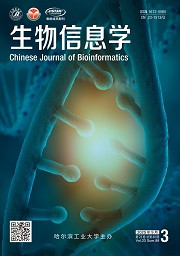| 引用本文: | 顾兆伟,张立忠,刘晓峰,谭先.抗癌药物作用预测计算方法的研究现状与展望[J].生物信息学,2020,18(1):16-21. |
| GU Zhaowei,ZHANG Lizhong,LIU Xiaofeng,TAN Xian.Overview of anti-cancer drug effect predictive computational methods[J].Chinese Journal of Bioinformatics,2020,18(1):16-21. |
|
| 本文已被:浏览 1892次 下载 1923次 |

码上扫一扫! |
|
|
| 抗癌药物作用预测计算方法的研究现状与展望 |
|
顾兆伟1,张立忠2,刘晓峰3,谭先4
|
|
(1.长春中医药大学附属第三临床医院 脑病康复科,长春 130000;2.长春市朝阳区清和社区卫生服务中心,长春 130000;3.空军杭州特勤疗养中心 康复理疗科,杭州 310000;4.东北师范大学 信息科学与技术学院,长春 130000)
|
|
| 摘要: |
| 对精准医疗即个体化医疗理念的探讨与实践是当下医学研究的热门课题,如果精准医疗的设想实现可为患者提供更加精确有效的治疗方案,而对癌症的研究是医学界尚未攻破且意义重大的研究课题,也是和精准医疗结合最密切的课题之一。应用生物信息学的计算方法可以通过分析患者的概况来为癌症患者的药物选择提供有效方案,从而提高癌症患者的生存率。通过参考多篇使用计算方法研究抗癌药物作用的研究成果,从数据源和网络分析、机器学习和深度学习等计算方法两个方面总结了当前的研究成果,并对该课题存在的问题与未来发展趋势做出了分析与展望。 |
| 关键词: 生物信息学 计算方法 癌症 癌症细胞系 药物作用 |
| DOI:10.12113/201908002 |
| 分类号:R318.04 |
| 文献标识码:A |
| 基金项目: |
|
| Overview of anti-cancer drug effect predictive computational methods |
|
GU Zhaowei1, ZHANG Lizhong2, LIU Xiaofeng3,TAN Xian4
|
|
(1. Department of Encephalopathy Rehabilitation, The Third Clinical Hospital of Changchun Traditional Chinese Medicine, Changchun 130000, China;2. Qinghe Community Health Service Center, Chaoyang District, Changchun 130000,China;3. Department of Rehabilitation Physiotherapy, Hangzhou Special Service Recuperation Center of the Air Force, Hangzhou 310000, China;4.Information and Technology School,Northeast Normal University, Changchun 130000, China)
|
| Abstract: |
| Precision medicine or personalized medicine is a major research interest in clinic nowadays, which promises to provide more effective and precise treatment for patients. It can be useful but remains unilluminated in cancer research. By providing more efficient framework of drug selection based on the heterogeneity of individual patient, an application of bioinformatics approach can improve the drug responding rate and survival rate of cancer patients. In this review, literature mining has been performed among the publications of computational approach applications for anti-cancer drugs therapeutic outcome prediction. A summary of updated progress has been made from the aspects of data source and computational methods, including network analysis, machine learning, and deep learning. The underlying issue and perspective of the study were also illustrated. |
| Key words: Bioinformatics Computational method Cancer Cancer cell line Drug effect |






